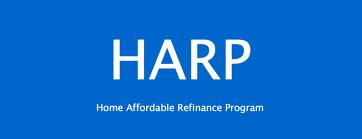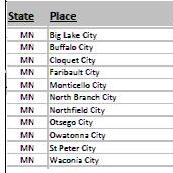St Paul, MN: We get it. You want the lowest mortgage interest rates. What you may not realize is that waiting for that low rate could make you your own worst enemy.
 When shopping mortgage rates, understand that the quote you got yesterday or last week is meaningless. Interest rates can change throughout the day and that may cost you dearly while you think about it. Face it, rates change daily – sometimes even multiple times in one day.
When shopping mortgage rates, understand that the quote you got yesterday or last week is meaningless. Interest rates can change throughout the day and that may cost you dearly while you think about it. Face it, rates change daily – sometimes even multiple times in one day.
Did you know you can pick any interest rate you want? Do you know the difference between the rate and pricing for the rate? Are you willing to pay the price to get a rate? Do you want lower closing costs? Has your loan officer explained these options and differences?
1. Call a local licensed loan officer (not a bank) and begin discussing the refinancing of your home, along with the best rate and cost options to fit your needs.
NOTE: It goes against the grain of what most people think, but your current lender is almost without fail, the most expensive refinance option.
2. If the refinance rate and savings makes sense, start an application with your local lender, but don’t pay any application fee. You may have to pay a small fee to have them pull your credit. If they request/demand an application fee, or have cancellation fees you should select another lender no matter how great their interest rate quote appears.
3. Once the lender has you in application you’re now in a position to lock in a rate that meets both your payment and equity objectives and in the interim you can begin gathering all the needed items to seek an approval for you loan. Starting an application and signing the initial disclosures does not constitute a contract. You are under no obligations at this time to continue. It does however, allow for an approval, which simplifies the entire process and puts you in the best position of strength for obtaining and locking your rate or making an offer on a new home.
Should you lock a rate, or hold out for something better?
We are asked this question an untold number of times a week. Everyone wants “the lowest rate” and no matter what great refinance rate I quote, human nature takes over. Everyone panics about locking today, because “what if rates go lower next week?” The first question to ask yourself is “Does the rate meet my payment objective?” If so, then lock, it really is that simple.
When the decision to lock has been made there are three possible outcomes;
- Rates drop – ok, not good, but usually not enough to realistically impact a decision.
- Rates remain the same – No worries
- Rates go up – Lucky me, I locked!
So using the three outcomes above you only have a 33% chance of a rate improvement, and a 66% of no change or rates going higher. What kind of gambler are you?








 The
The  How Does It Work?
How Does It Work?